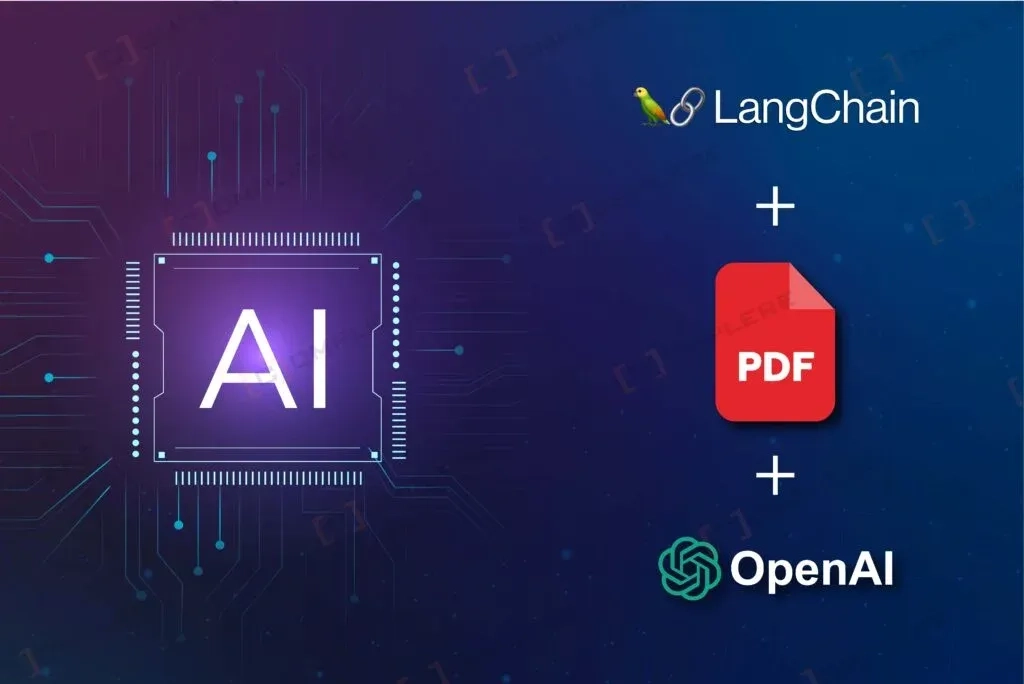As artificial intelligence continues to evolve, the need for processing large documents efficiently has become increasingly crucial. OpenAI's powerful language models, like GPT-3.5 turbo, have brought transformative capabilities to natural language processing (NLP). However, one significant limitation is their token restriction—typically capped at around 4000 tokens. This poses a challenge when working with extensive documents, such as PDFs, which often exceed these limits. But fear not, LangChain has arrived to save the day! This innovative web framework is designed to seamlessly chunk and embed larger PDF files, effectively shattering the token limitations that once held us back.
Understanding the Token Limitation Challenge
OpenAI’s language models operate with a token limit, where each token can be as short as one character or as long as one word. Tokens are chunks of text, with each token corresponding to a word or a piece of a word. For instance, the word “reading” might be split into two tokens: “read” and “ing”. For instance, GPT-3.5 turbo has a maximum token limit of around 4000 tokens. When processing documents longer than this limit, the models cannot handle the entire text at once which when exceeded, can lead to truncation of text, loss of context, and overall inefficiency in processing large documents like PDFs. This restriction can lead to incomplete analysis or generation, making it challenging to work with extensive texts.
This token constraint poses a significant hurdle when dealing with extensive PDFs containing thousands of words. Critical information might be omitted, and the contextual integrity of the document can be compromised. To fully leverage the capabilities of AI in extracting and understanding information from large PDFs, a sophisticated method of handling these files is required.
Introducing LangChain: A Solution for Large Document Processing
LangChain is designed to address the issue of handling large documents by breaking them into smaller, manageable chunks. Here’s how LangChain streamlines the process:
- Chunking: LangChain divides large PDF files into smaller segments or “chunks.” This ensures that each chunk is within the token limits imposed by OpenAI’s models. Chunking allows for processing substantial documents in parts without losing the context.
- Embedding: After chunking, LangChain embeds these chunks into a format that can be easily processed by OpenAI’s models. This involves converting the text into numerical representations that encapsulate semantic meaning, making it easier for the model to understand and generate relevant responses.
- Integration with OpenAI: LangChain’s embedded chunks are then fed into OpenAI’s models. By processing the document in smaller pieces, the entire content can be analyzed or generated over multiple iterations, effectively circumventing the token limitation.
Step-by-Step Guide to Using LangChain for PDF Processing
Let’s walk through how to use LangChain to chunk and embed a large PDF file and then generate multiple-choice questions answer from it.
Installation
First, let’s install all the necessary libraries. You can install it via pip:
- Langchain :

- OpenAi:
- PyPDF:

- Faiss-cpu:

- Flask

Import Dependencies:
Ensure you have the necessary dependencies installed.


Loading and Chunking PDF:
The PyPDFLoader loads the PDF, and the text is split into smaller chunks using the load_and_split.

Embedding and Retrieving
The chunks are embedded using OpenAI embeddings and indexed using FAISS for efficient retrieval.

Conversational Chain
A ConversationalRetrievalChain is created, which integrates with OpenAI’s language model to process the chunks and generate MCQs.

Benefits of Using LangChain
- Efficient Processing: By breaking down large documents, LangChain ensures that the entire content can be processed efficiently without hitting the token limits.
- Context Preservation: Chunking with overlap ensures that the context is preserved across chunks, maintaining the coherence of the processed text.
- Scalability: LangChain can handle documents of varying sizes, making it scalable for diverse applications, from legal tech to academic research.
Conclusion
LangChain revolutionizes the way we handle large PDF documents, offering a robust solution to the token limitation challenge posed by OpenAI’s language models. By chunking and embedding large texts, LangChain enables comprehensive analysis and generation, unlocking new possibilities for NLP applications. By leveraging LangChain, developers and researchers can overcome token limitations, ensuring that no part of a document is left unexplored.Ready to improve your business operations by innovating Data into conversations? Click here to see how Data Outlook can help you automate your processes.













